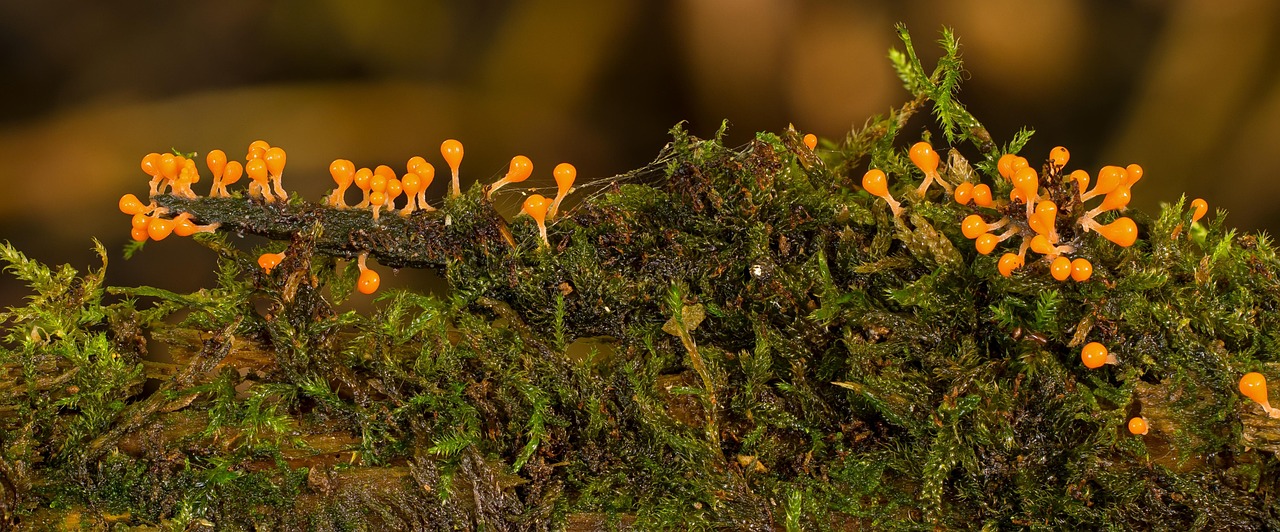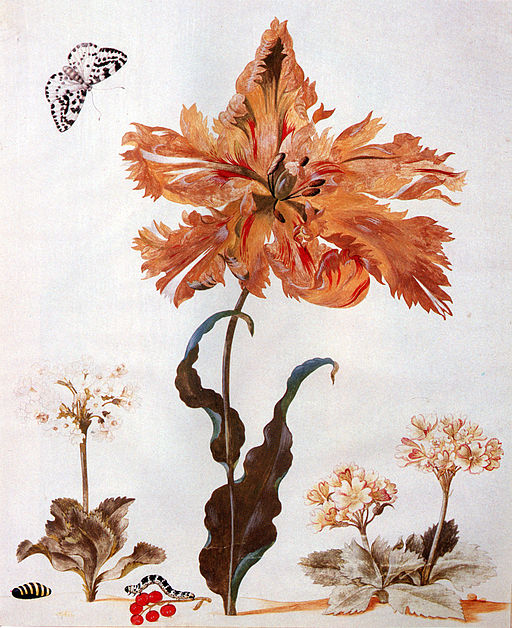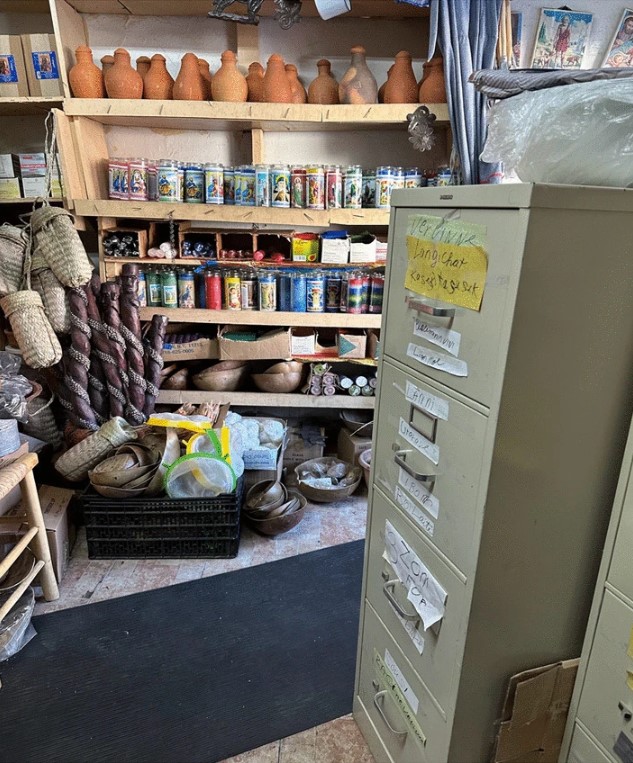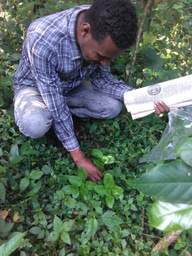Ethnobiology articles that captured media attention
Published in Social Sciences, Ecology & Evolution, and Microbiology

Plasmodial slime moulds (myxomycetes) in Swedish and Nordic folk biology
This captivating study explores the role of plasmodial slime moulds, or myxomycetes, in the folk biology of Nordic countries. These peculiar organisms, often overlooked due to their lack of practical use, played a surprisingly significant role in the folk biology and beliefs of pre-industrial Sweden and neighboring Nordic countries. This study has attracted attention from the media, including The Guardian that has mentioned it in this recent science opinion piece.
Fuligo septica, whimsically known as "scrambled egg slime", captured the imagination of Nordic peasants and was associated with supernatural malevolent beings. Imagine a hare or cat stealing milk or butter on behalf of a witch!

The sudden appearance of these strange, colorful shapes in damp weather sparked both fear and curiosity among the locals. These odd organisms demanded explanations, leading to fascinating interpretations and actions. The belief in the evil origins of slime led to some dramatic responses, including whipping and burning the organism. Talk about taking folklore seriously!
Two other taxa, Lycogala epidendron and Mucilago crustacea, also made appearances in folk biology, though data on them is sparse.
Media trends of this article on Altmetric
Advancing ethnobiology for the ecological transition and a more inclusive and just world: a comprehensive framework for the next 20 years
This thought-provoking paper brings together ethnobiologists from around the globe to chart a bold course for the next 20 years of ethnobiology. The authors emphasize the critical role of ethnobiology in addressing contemporary challenges such as biodiversity conservation, sustainable development, and the ecological transition.
The paper underscores the importance of collaborating with Indigenous Peoples and Local Communities (IPLCs), as well as Afro-descendants and other marginalized groups. These communities possess invaluable knowledge that can drive sustainable resource management and biodiversity conservation. A significant focus is placed on decolonizing the field, ensuring that research respects and integrates the perspectives and rights of local knowledge holders. This approach aims to rectify historical imbalances and promote more equitable practices.
As the authors outline a comprehensive framework for the future of this unique subject area, Ethnobiology is presented as a key to unlocking locally appropriate solutions to environmental challenges.
Media trends of this article on Altmetric
Female naturalists and the patterns of suppression of women scientists in history: the example of Maria Sibylla Merian and her contributions about useful plants
Dive into the captivating history of female naturalists and uncover the remarkable contributions of Maria Sibylla Merian, a pioneering scientist whose work on useful plants has been unjustly overshadowed. The study identifies 28 women naturalists who participated in scientific expeditions between the seventeenth and nineteenth centuries. These women documented botanical species, their everyday uses, and medicinal properties, often through illustrations and published works. Merian's groundbreaking book, Metamorphosis Insectorum Surinamensium, stands out for its detailed text and illustrations. Despite her significant contributions, Merian faced suppression and male depreciation, a common pattern for women scientists of her time.

Maria Sibylla Merian, Public domain, via Wikimedia Commons
Media trends of this article on Altmetric
Haitian women in New York City use global food plants for women’s health
This insightful paper explores how Haitian women in New York City continue to use medicinal plants for women's health, blending traditional knowledge with their new urban environment. The study highlights the resilience and adaptability of cultural practices, emphasizing their relevance for a wider public interested in health, culture, and migration.
Despite the availability of mainstream biomedical healthcare, 83% of Haitian women in NYC continue using medicinal plants for women's health, showcasing the enduring importance of traditional practices. The study reveals that many of the medicinal plants used are also common food plants, underscoring the intertwined relationship between diet and health in Caribbean cultures. This connection highlights the broader relevance of food as medicine.

The research identifies key health concerns among Haitian women, such as childbirth, gynecological infections, and vaginal cleansing, which are addressed using these plants. This focus on women's health issues resonates with broader public health interests. By comparing the practices of Haitian women with those of other Caribbean immigrants in NYC, the study emphasizes the diversity within Caribbean ethnomedicine. This diversity challenges the notion of a monolithic "Caribbean" traditional knowledge system.
The findings suggest that healthcare providers can enhance their services by integrating culturally relevant practices and knowledge. This approach can lead to more effective and personalized healthcare strategies for immigrant communities.
Follow the Topic
-
Journal of Ethnobiology and Ethnomedicine

This journal publishes original research focusing on cultural perceptions of nature and of human and animal health. It invites research articles, reviews and commentaries concerning the investigations of the inextricable links between human societies and nature, food, and health.
Related Collections
With Collections, you can get published faster and increase your visibility.
Ethnobiology of the islands
This Collection examines the socio-ecological systems of "islands" and coastal areas worldwide, focusing on the relationship between humans and biota and even non-biotic components and the implications of these interactions over time and space. Cross-cultural analysis, indigenous perspectives, and the complex dynamics between the local knowledge of these "isles" (especially the most peripheral and marginalized ones) and the contiguous mainland are particularly welcome. Issues related to the effects of unsustainable tourism on local knowledge systems are also very appropriate.
The projection of the contributions should aim to foster the community-centered sustainable management of marine and coastal resources and envision new paths in environmental education and political ecology.
This Collection supports and amplifies research related to SDG 14, Life Below Water and SDG 15, Life on Land.
All submissions in this collection undergo the journal’s standard peer review process. Similarly, all manuscripts authored by a Guest Editor(s) will be handled by the Editor-in-Chief. As an open access publication, this journal levies an article processing fee (details here). We recognize that many key stakeholders may not have access to such resources and are committed to supporting participation in this issue wherever resources are a barrier. For more information about what support may be available, please visit OA funding and support, or email OAfundingpolicy@springernature.com or the Editor-in-Chief.
Publishing Model: Open Access
Deadline: Jul 03, 2026
Small-scale farming and ethnobiology – Bridging local knowledge, biodiversity, and cultural landscapes
The importance of deepening our understanding of small-scale farming and its intersections with ethnobiology and ethnoecology cannot be overstated. These fields illuminate not only traditional agricultural practices that have sustained communities for generations, but also contemporary locally adapted sustainable practices. Together, they underscore the vital role of local knowledge in preserving biodiversity and shaping cultural landscapes.
Recent research has highlighted the intricate relationships between local communities and their territories and ecosystems, showing how both traditional and locally adapted innovative farming methods can enhance biodiversity and promote ecological balance. These insights are essential for informing sustainable land management and ecosystem resilience.
Looking ahead, continued exploration in this area holds the potential to yield transformative insights. Integrating traditional knowledge with organic and agroecological practices—which may be ancient, innovative, or retro-innovative—can lead to more sustainable and resilient food and agriculture systems. This research is not only key to preserving cultural heritage but also to addressing urgent global challenges related to food security and environmental sustainability.
Topics of interest include, but are not limited to:
Local Knowledge & Sustainability
• Local Knowledge Systems in Agriculture
• Traditional Agricultural Practices and Sustainability
• Indigenous Knowledge and Climate Resilience
Biodiversity & Conservation
• Biodiversity Conservation in Small-Scale Farming
• Ethnobiological Approaches to Conservation
• Ethnoecological Perspectives on Land Use
Agroecology, Organic Farming & Cultural Landscapes
• Agroecological & Organic Practices and Transitions
• Innovation and Local Knowledge in Agroecological and Organic Systems
• Cultural Landscapes and Food Sovereignty.
This Collection supports and amplifies research related to SDG 2, Zero hunger, SDG 12, Responsible consumption and production, and SDG 15, Life on land.
All submissions in this collection undergo the journal’s standard peer review process. Similarly, all manuscripts authored by a Guest Editor(s) will be handled by the Editor-in-Chief. As an open access publication, this journal levies an article processing fee (details here). We recognize that many key stakeholders may not have access to such resources and are committed to supporting participation in this issue wherever resources are a barrier. For more information about what support may be available, please visit OA funding and support, or email OAfundingpolicy@springernature.com or the Editor-in-Chief.
Publishing Model: Open Access
Deadline: Jun 22, 2026





Please sign in or register for FREE
If you are a registered user on Research Communities by Springer Nature, please sign in